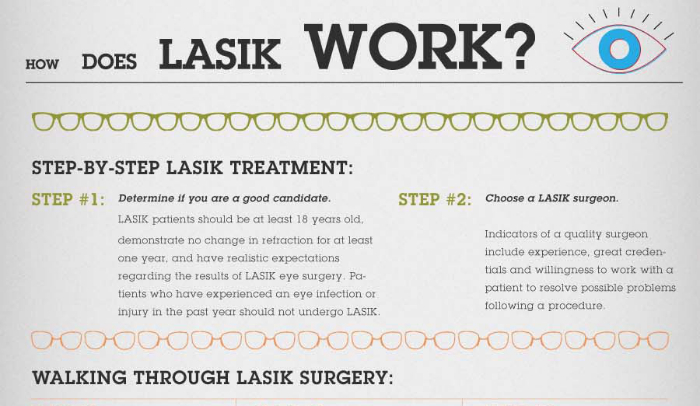When considering the option in between conventional cataract surgery and laser-assisted methods, you might find yourself weighing the advantages and drawbacks each approach supplies. The decision surpasses the surface level of expense and accuracy, delving into the realm of lasting results and individual satisfaction. As you navigate via the complexities of these 2 approaches, it comes to be imperative to understand the nuanced information that can significantly influence your aesthetic quality and general experience. Remain tuned to uncover the important variables that will direct your decision-making process in this crucial aspect of eye treatment.
Traditional Cataract Surgical Procedure Advantages And Disadvantages
When considering typical cataract surgery, you might find that it's a well-established and widely-used method. In this procedure, a doctor makes a tiny cut in the eye and uses ultrasound to separate the over cast lens before removing it. When the cataract is removed, a man-made lens is placed to restore clear vision.
https://sergiooufkq.mdkblog.com/38085467/the-payment-of-technology-to-lasik-exactly-how-developments-boost-individual-outcomes of the main advantages of conventional cataract surgical treatment is its record of success. Several patients have actually had their vision considerably improved through this treatment. In addition, conventional surgical procedure is often covered by insurance coverage, making it an extra accessible option for many individuals.
Nonetheless, there are some drawbacks to conventional cataract surgical procedure also. Recuperation time can be longer contrasted to newer techniques, and there's a somewhat greater threat of complications such as infection or swelling. Some individuals may also experience astigmatism or require reading glasses post-surgery.
Laser-Assisted Techniques Pros and Cons
Checking out laser-assisted methods for cataract surgery unveils a contemporary approach that makes use of laser technology to execute key steps in the treatment. Among the key advantages of laser-assisted cataract surgical procedure is its accuracy. The laser enables very precise cuts, which can bring about much better aesthetic outcomes. Additionally, the use of lasers can decrease the amount of ultrasound power required throughout the surgical treatment, possibly lowering the risk of complications such as corneal damages.
On the disadvantage, laser-assisted strategies can be more costly compared to standard techniques. This cost mightn't be covered by insurance, making it much less accessible to some patients.
An additional consideration is that not all cataract specialists are trained in laser modern technology, which could limit your alternatives for selecting a doctor.
Last but not least, while the laser can automate certain elements of the procedure, the surgical treatment still needs a competent surgeon to make sure effective outcomes.
Comparative Evaluation of Both Techniques
For a detailed understanding of cataract surgical treatment techniques, it's necessary to carry out a comparative evaluation of both typical and laser-assisted techniques.
Typical cataract surgical treatment entails manual lacerations and the use of portable tools to separate and eliminate the gloomy lens.
On the other hand, laser-assisted cataract surgery uses sophisticated technology to produce exact lacerations and separate the cataract with laser energy prior to removing it.
In terms of precision, laser-assisted methods offer a higher degree of accuracy contrasted to traditional approaches. Using lasers enables personalization of the procedure based on each patient's eye composition, possibly resulting in far better aesthetic outcomes.
Nonetheless, https://www.dovepress.com/comparison-between-the-effect-of-femtosecond-laser-in-situ-keratomileu-peer-reviewed-fulltext-article-OPTH -assisted cataract surgery has a tendency to be extra expensive than standard surgery, which might restrict availability for some people.
While both methods work in recovering vision damaged by cataracts, the option between conventional and laser-assisted methods commonly depends upon variables such as price, precision, and private client needs.
Consulting with your ophthalmologist can assist figure out the most appropriate strategy for your cataract surgery.
Verdict
To conclude, when deciding in between conventional cataract surgery and laser-assisted techniques, take into consideration factors like price, accuracy, and specific needs. Typical surgery provides a tested record and insurance protection however may feature longer healing times. Laser-assisted techniques provide higher precision and modification however can be much more expensive and not always covered by insurance policy. Inevitably, the choice in between the two methods depends upon what is essential to you and your certain circumstance.

 Ross Bagley Then & Now!
Ross Bagley Then & Now! Elin Nordegren Then & Now!
Elin Nordegren Then & Now! Earvin Johnson III Then & Now!
Earvin Johnson III Then & Now! Nadia Bjorlin Then & Now!
Nadia Bjorlin Then & Now! Peter Billingsley Then & Now!
Peter Billingsley Then & Now!